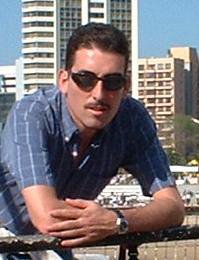Bush crony Vazquez Botet convicted in federal Superaqueduct case
One of President Bush’s biggest fundraisers in Puerto Rico was found guilty on Friday of seven federal counts of conspiracy, extortion and fraud in connection with a $372 million public works project built in the mid-1990s called the Superaqueduct. Dr. Rene Vazquez Botet, 51, faces between seven and 10 years in prison. A former Republican Party committeeman, this pediatric ophthalmologist was appointed by Bush in 2001 to serve on the president’s Educational Excellence for Hispanic Americans Commission.
He was indicted in 2004 along with lawyer Marcos Morell Corrada for comprising a scheme in which they both received $2.4 million in kickbacks from private firms which wanted to secure and preserve their contracts to build the water pipeline in 1995. Morell Corrada, 58, was also convicted on eight similar counts. It took a jury 14 hours over three days to hand down its verdict.
Although he said he was inclined to revoke their bail and send the two immediately to prison, U.S. District Judge Jose Fuste instead placed Vazquez Botet and Morell Corrada under 24-hour house arrest and ordered them to wear electronic monitoring bracelets.
Because of the two defendants’ political connections and issues surrounding the inquiry, the case had turned into a high profile investigation in which officials from the U.S. Justice Department’s Public Integrity Division flew down from Washington to prosecute both men. Vazquez Botet was campaign manager for former Gov. Pedro Rossello (1993-2001) of the New Progressive Party. Both had been close friends until around 1997 when they had a falling out -- the reasons for which are still unclear. Rossello, a former pediatric surgeon who now serves as senator in the Puerto Rican legislature, had been under investigation by federal authorities in several corruption schemes that the U.S. Attorney’s Office broke wide open, but he has never been prosecuted.
For his part, Morell Corrada served as secretary general for the pro-statehood New Progressive Party from 1991 to 1996, until he resigned under pressure after corruption allegations surfaced. He received more than $125,000 in payments from contractors in the form of appliances, cash, car rentals and donations to a local basketball team he was managing.
“Defendants, with their actions motivated by greed, betrayed not only their families and the community, but also a large constituency of law-abiding persons that belong to the political party the defendants worked for,” said US District Judge Jose Fuste after the jury convictions. “The public and private sectors in Puerto Rico are infected by corruption, to the point that the community wonders whether we have reached the point of no return.”
The two men and their lawyers – Howard Srebnick of Miami and Francisco Rebollo and Edgar Vega of Puerto Rico – tried all types of legal maneuvers to keep the defendants from going to trial. Even the federal judge who was first assigned the case and is known to be a local NPP supporter appeared to have sided with the defendants by trying to derail the criminal indictment. But the U.S. Court of Appeals in Boston took the case away from him and gave it to Judge Fuste who immediately ordered Vazquez Botet and Morell Corrada to stand trial. After the convictions, Trial Attorney Mary Butler of the US Justice Department publicly "encouraged" the two men to cooperate in her ongoing investigation.



